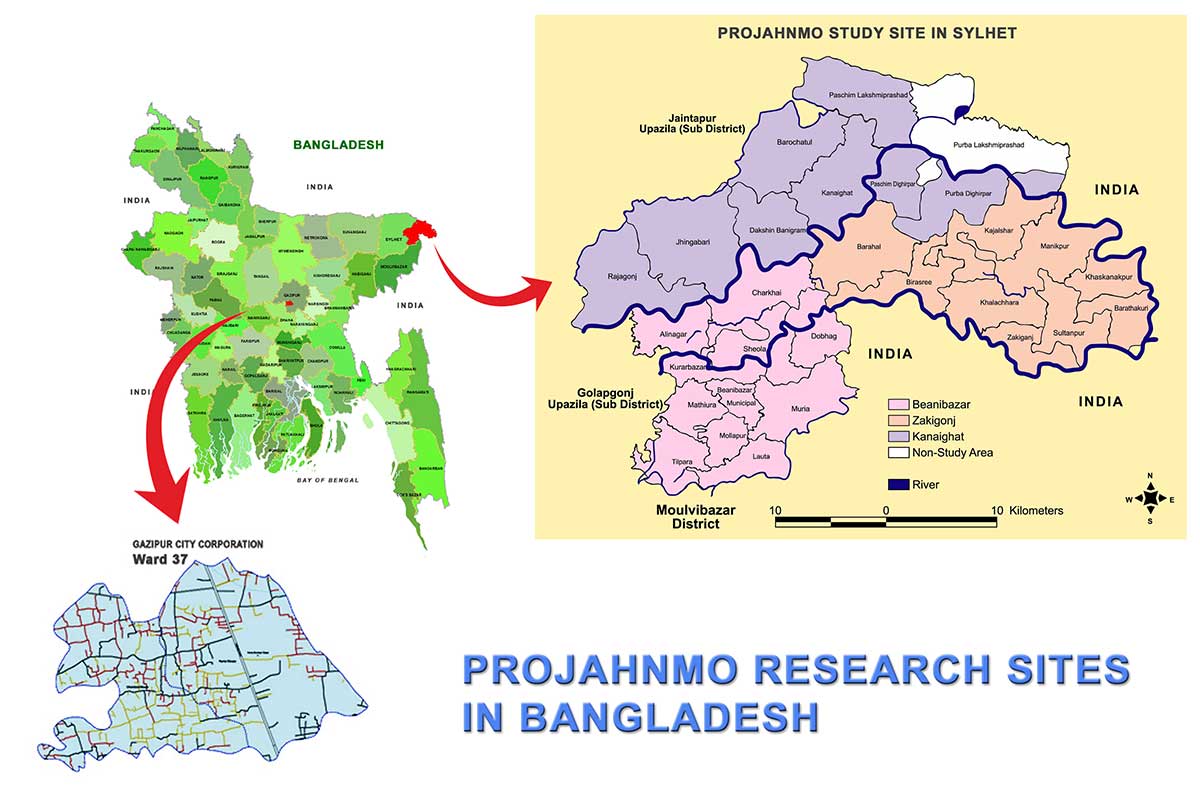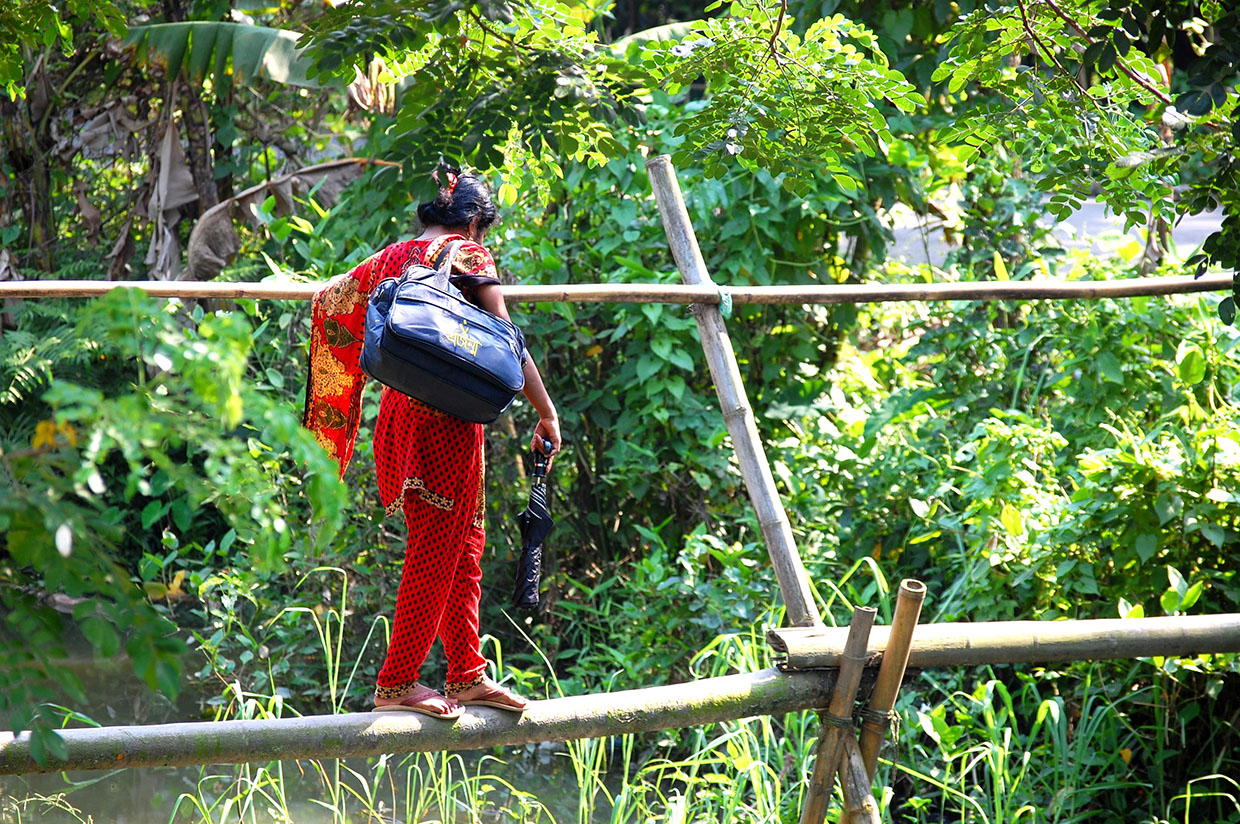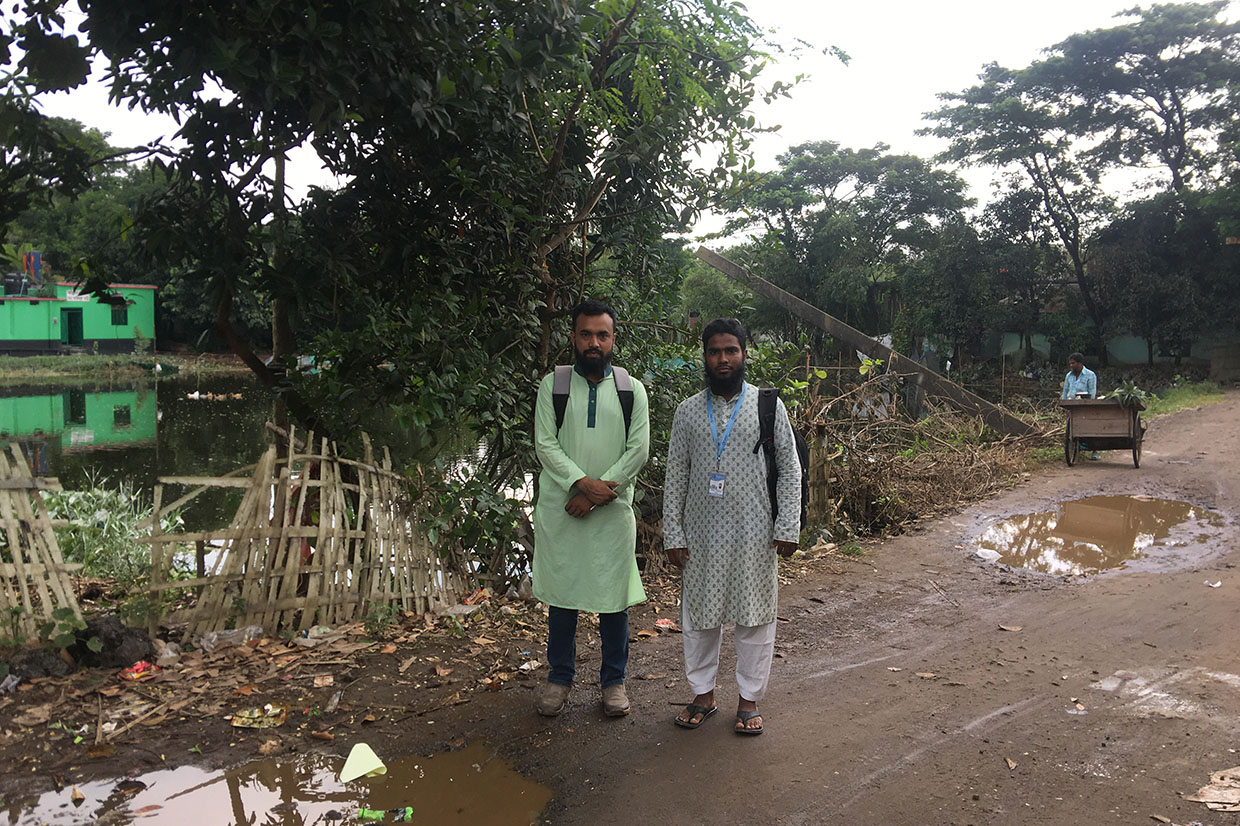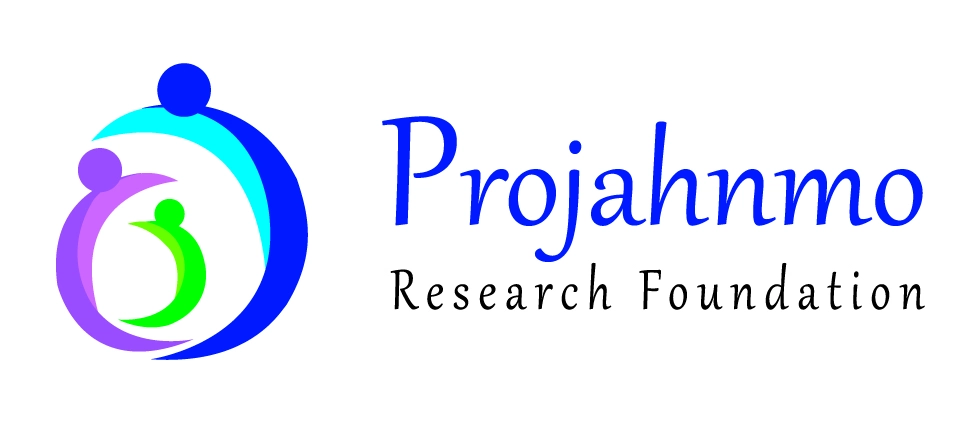
DEMOGRAPHIC SURVEILLANCE

Rural Demographic Surveillance
We have established a basic demographic surveillance system (DSS) in three rural sub-districts of Sylhet, Bangladesh (Zakiganj, Kanaighat and Beanibazar) with an estimated population of 770,000. The purpose of the demographic surveillance system is to maintain a longitudinal database of households with particular focus on married women of reproductive age (MWRA) and under-five children allowing us to conduct high quality nested epidemiological research including intervention trials and observational studies. The DSS is the backbone of the field site and provide background data to specific studies on a regular basis.
The surveillance activities include a 2-monthly household visit by a community health worker (CHW) to update the population, identify pregnancies and pregnancy outcomes and conduct periodic census to update the population characteristics and GIS coordinates of all households, health facilities and other important landmarks. All households and women of childbearing age in the study area have unique current and permanent identification numbers, which allow for individual tracking and longitudinal follow-up. Trained female CHWs who are residents of the community and have at least a 10th grade education have been assigned to a population of about 10,000 individuals. Each CHW visits all households (about 2,000 households on average) in her area once every two months to update the population data by recording all new pregnancies, births, deaths, marriages and movements. Background data on age, parity, literacy, prior obstetric history and socio-economic status of all enrolled women in our study area are collected as part of different studies and are available in our database.
The components of the Projahnmo DSS are as follows:
- To maintain an updated list of households
- To maintain an updated list of married women of reproductive age (MWRA)
- To identify pregnancies in registered MWRAs and maintain an updated list of pregnant women
- To document pregnancy outcomes of all identified pregnant women
- To maintain an updated list of under 5 children in the areas
- To record all deaths in registered MWRAs and under-5 children
- To record all in- and out-migrations
- To collect information related to household socioeconomic characteristics on a regular basis.

Urban Demographic Surveillance
Majority of our works so far are limited to rural population and the benefits of our efforts did not reach the urban population equally. Due to rapid urbanization, urban population has been increasing rapidly in Bangladesh. Although private and for-profit health care has flourished in urban areas, no affordable health care system for urban poor and middle-class working people has been established in urban areas of Bangladesh. With the increasing women employment, particularly in ready-made garments (RMG) sector, women and children are at greater needs of affordable health care in urban and peri-urban areas of Bangladesh. PRF has thus expanded its efforts to implement evidence-based health care interventions in an urban areas of Gazipur district with a high concentration of poor people including female RMG workers. We have selected this area based on our preliminary findings of situation analysis and willingness of the local government bodies to collaborate with us.

